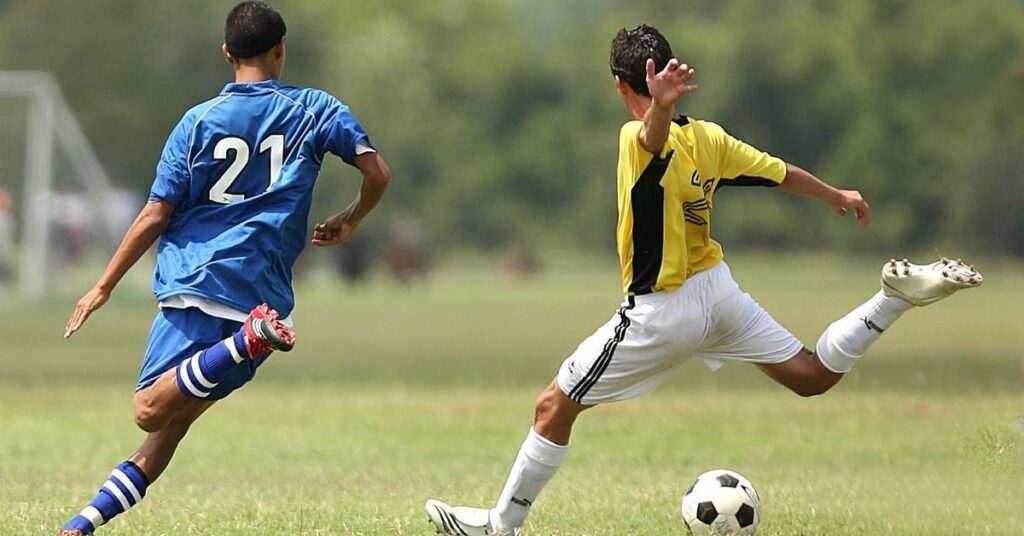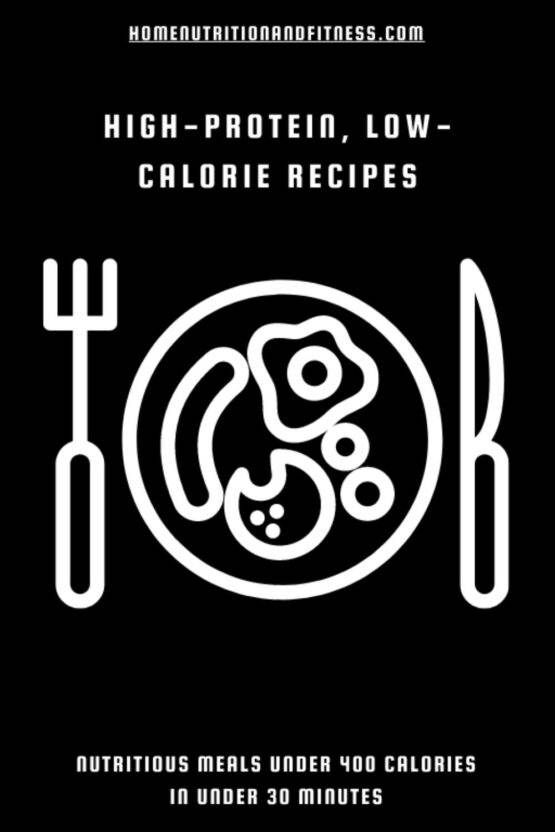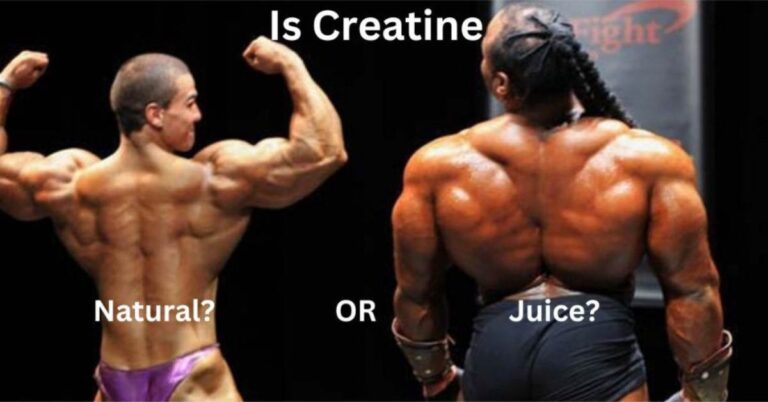Creatine is one of the most popular sports supplements, especially among young athletes looking to enhance their athletic performance. But what are the benefits of creatine for athletes under 18 years old? Let’s take an in-depth look at what creatine is, how it works in the body, its performance-enhancing qualities, health considerations, and alternatives to creatine for adolescents.
Creatine supplements have proven benefits for athletes, including increased energy, power, strength, muscle mass, and post-workout recovery. They are safe for adults, with added health benefits. However, further research is required regarding its safety and advantages for athletes under 18, despite its extensive use by this age group with no reported negative effects.
Affiliate Disclosure: Please note that some of the links on this page may be affiliate links. This means that if you click on these links and make a purchase, we may earn a small commission, at no additional cost to you. As an Amazon Associate, we earn from qualifying purchases. We only recommend products and services that we believe in and use ourselves. Your support through these links helps us keep the content coming. Thank you for your support!
What Exactly is Creatine and How Does it Work?
Creatine is a naturally occurring compound found in the human body that provides energy to cells, primarily muscle cells. The human body requires 1-3g of creatine per day to maintain phosphocreatine levels.
Creatine occurs naturally in foods like red meat and fish and depending on personal food preferences, the human diet typically supplies about half of this quantity. Uncooked beef and salmon are particularly rich in creatine, providing around 1-2 grams per 450 grams. The remaining amount of creatine is synthesised by the kidney and liver(1) but is also available as a supplement, which can boost creatine levels higher than the levels obtained through diet alone.
When creatine is stored in the muscles, it assists with energy production by increasing stores of phosphocreatine. Phosphocreatine is used to regenerate ATP, which is the key immediate energy source for any short-burst, high-intensity activities like weight lifting, sprinting, or jumping.
More phosphocreatine means faster regeneration of ATP energy. This leads to performance improvements in areas like strength, anaerobic power, muscle mass, and overall exercise capacity. However, the effects are most noticeable in sports requiring quick, explosive bursts of effort.
Further reading:
What Are Supplements? (And Why Do They Matter?)
How Do I Know If Creatine Is Working? (6 Telltale Signs!)
How Long Does It Take for Creatine To Work? (EXPLAINED)
What Are The Different Types Of Creatine Supplements?
There are several forms of creatine supplements available:
- Creatine monohydrate – The most studied form that’s affordable and effective. Some users report minor digestive discomfort. No serious risks.
- Buffered creatine – Contains an acid and base to help minimize potential stomach issues. Less likely to cause discomfort but no added performance benefits over monohydrate. Slightly more expensive.
- Liquid creatine – Mixed in a liquid medium, often with glucose for better solubility. No added benefits over powder forms. Much more expensive than powders.
- Creatine hydrochloride – More water-soluble but may cause diarrhoea or cramping. Also, converts to creatinine faster so muscle saturation takes longer. More expensive than monohydrate.
- Creatine ethyl ester – Said to have enhanced bioavailability but several studies show similar effects as monohydrate at equal doses. Potentially risky for the liver at high doses. Much pricier.
For most athletes and teens, creatine monohydrate powder is the best option – it’s affordable, safe, and widely studied. The other forms don’t offer enough added benefit to justify the extra cost and have been studied far less than creating monohydrate.
For more information on creatine and how heat affects its efficiency, see Does Heat Destroy Creatine? (ANSWERED!)
“…creatine supplementation appears safe and potentially beneficial for children and adolescents.“
https://www.ncbi.nlm.nih.gov/pmc/articles/PMC7871530/
What are the Potential Performance Benefits for Athletes Under 18?

Let’s explore some key ways any athlete can benefit from creatine supplementation:
Increased Muscular Strength and Power
Numerous studies demonstrate that creatine supplementation boosts muscular strength and power output in teens compared to placebo groups. For example, one study showed significantly greater strength gains in the bench press exercise when teen athletes took creatine versus those who took placebo (2).
Other research has found creatine can double the increase in peak anaerobic power during cycling sprints compared to placebo (3). This research indicates creatine directly aids strength and power capabilities.
Enhanced Muscle Growth and Body Composition
Scientific evidence indicates that creatine supplementation can also boost lean muscle mass and size in adolescents. Athletes also accumulate less fat mass during off-season weight training periods when supplementing with creatine.
While some increase in muscle size is due to greater water filling the muscles, creatine does appear to stimulate actual muscle protein synthesis as well. This means true muscle fibre growth occurs, not just temporary water retention.
Reduction in Injuries
Some studies point to decreased frequency and severity of muscle cramps, strains, and tears in creatine users. This is possibly due to the improvements in strength and power output. By producing more force and power, the muscles are less strained at any given weight.
Mental and Cognitive Performance
There could also be cognitive benefits from creatine supplementation like increased mental processing speed and faster reaction times. This could help with sport-specific skills that require quick thinking and reflexes. But currently, there is minimal evidence relating to improved cognitive performance in teens.
Improved Recovery Between Exercise
A few studies also indicate creatine may help athletes recover faster after strenuous training sessions. The potential to train harder more frequently could enhance long-term training adaptations.
What are the Potential Health Risks of Teen Creatine Use?
While creatine does appear to have impressive performance-enhancing effects, there are some potential risks for athletes in general to consider carefully.
However, it is important to note that some people refer to the warnings on product labels saying that individuals under 18 shouldn’t take creatine. They mistakenly assume this means creatine is unsafe for younger people, but actually, there isn’t enough data to confirm the need for these warnings.
These warnings are not scientifically backed and are mainly given as a legal precaution.
Dehydration and Muscle Cramping
Creatine pulls water into the muscles which can increase the risk of dehydration, especially since teens are already less efficient at thermoregulation. Inadequate hydration combined with creatine supplementation could exacerbate the risks of overheating, fatigue, and painful muscle cramping.
Weight Gain
Many teens see a rapid jump in body weight when they first start taking creatine, which is mostly water being stored in the muscles. This sudden weight gain, even though it’s not an increase in muscle tissue per se, can still be concerning psychologically. It could negatively impact self-esteem and body confidence.
Effects on Kidneys and Liver
There is limited specific data on the effects creatine may have on kidney and liver function in general and at recommended doses, there are no clear indications of adverse health effects (3,4). However, teen athletes with preexisting kidney or liver conditions should be especially cautious with creatine.
Drug Interactions
Little is known about how creatine could potentially interact with other supplements commonly taken by teen athletes. For instance, creatine combined with stimulants like caffeine could theoretically have negative interactions. More research is certainly needed in adolescent populations.
Unknown Long-Term Effects
Since creatine supplementation has only gained widespread popularity in the last 25 years, the very long-term effects are simply unknown. There are no studies examining the effects of creatine taken regularly for decades, which is a consideration for teens who start supplementing at a young age.
The Unfortunate Side Effects of Creatine…
Creatine Research in Athletes Under 18
Over the last 25 years, researchers have conducted thorough studies on creatine, and there is substantial evidence to support the performance-enhancing benefits of adding creatine supplements to your diet. There has also been a lot of associated research regarding the safety and health benefits of creatine supplementation. However, this research has been aimed at the adult population, mainly for ethical reasons and there is limited evidence relating to athletes under 18.
Jagim et al. (4) released a review of the Safety of Creatine Supplementation in Active Adolescents and Youth which highlighted the lack of research in this area. They did, however, refer to a small number of studies that confirmed an increase in performance in athletes under 18 when supplementing creatine.
They also highlighted that creatine supplementation in children has been used as a form of medical therapy. The most common use is for children born with creatine deficiency syndrome. Among the reported findings, creatine supplementation increased brain creatine levels and stabilised other clinical outcomes. The review also references Hayashi et al..(5) who found no harmful changes in kidney and liver function amongst other markers.
Alternatives to Creatine for Athletes Under 18
Rather than jumping straight to creatine supplementation, young athletes may consider these alternative strategies:
- Focus on proper progressive strength training to spur muscle growth through natural processes.
- Prioritize sleep, balanced nutrition, and recovery practices for natural gains.
- Consider lower-risk supplements like protein powders, vitamin D, or omega-3s.
- Work closely with your coach and sports health professionals. Get your parents on board as well.
Key Takeaways on the Benefits of Creatine for Athletes Under 18?
In summary, research indicates creatine supplementation can provide benefits like increased energy, power, strength, muscle mass, and post-workout recovery in athletes. Associated research also highlights the added health benefits and safety of supplementing with creatine in adults. However, more research is needed on the safety and benefits of creatine for athletes under 18 despite evidence that creatine is already being used extensively by those under the age of 18 and is well tolerated with no reported adverse effects (6).
Frequently Asked Questions
In addition to the benefits and risks of creatine for teens, there are also many general questions people have about creatine supplements. Here we address some other common FAQs.
Q. Is it good to have creatine every day?
A. It’s generally recommended to take creatine in cycles, such as 8-12 weeks on followed by 4 weeks off. This allows your body’s stores to replenish naturally. Taking creatine daily long-term is not necessary to maintain the effects.
Q. When should I take creatine?
A. The best time to take creatine is shortly before or after your workout. This helps supply your muscles when they need it most. Taking creatine along with a protein and carbohydrate source can further maximise absorption.
Q. Does creatine affect sleep?
A. Creatine does not appear to directly affect sleep or cause insomnia. However, taking creatine too close to bedtime can potentially cause some gastrointestinal discomfort which could impair sleep quality. It’s best to take creatine earlier in the day.
Disclaimer: This article is for general educational purposes only and is not intended as medical advice. The information provided is based on published research, but the safety and efficacy of creatine supplementation has not been fully established in adolescents under age 18. Teen athletes interested in taking creatine should consult with a doctor first, especially if they have any preexisting health conditions or are taking any medications or other supplements. Proper medical supervision is highly recommended for teens using creatine. Creatine may interact negatively with certain health conditions or other substances. Parents, coaches, and healthcare professionals should carefully consider the risks vs potential benefits before recommending creatine to athletes under age 18. The author and publisher disclaim any liability based on the educational information provided in this article.







